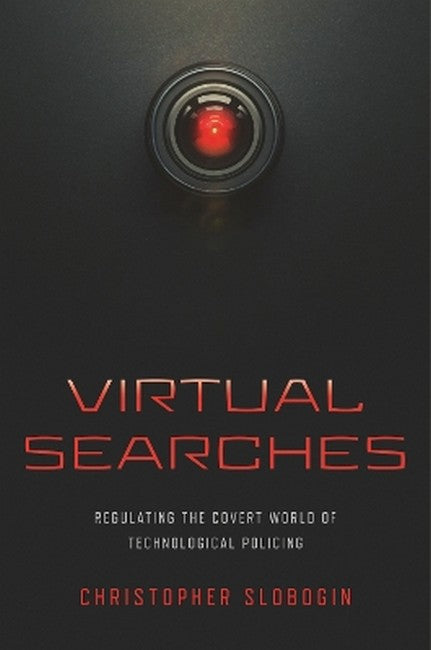Christopher Slobogin is Milton Underwood Professor of Law at Vanderbilt University. He is one of the five most cited criminal law and procedure law professors in the country, and one of the top 60 most cited law professors according to Hein Online.
Request Academic Copy
Please copy the ISBN for submitting review copy form
Description
"Well-written, encyclopedic, and persuasive, Virtual Searches offers a fully-formed theory on the Fourth Amendment's future in the face of new technologies. The rigor and depth of Slobogin's analysis is rock solid and he offers a clear approach to regulating the hardest questions emerging around new policing technologies." -- Andrew Guthrie Ferguson, author of The Rise of Big Data Policing: Surveillance, Race, and the Future of Law Enforcement "Cutting-edge and well-written, this is an important book on a critical issue in policing and surveillance, and it presents a number of original ideas that will assist academics and policymakers in navigating these issues. I have never seen any other scholar offer such a comprehensive typology for different types of digital surveillance." -- Ric Simmons, Jacob E. Davis and Jacob E. Davis II Chair in Law, Moritz College of Law, The Ohio State University "In a world of pervasive cameras and sensors, data harvesting, and artificial intelligence, what will become of privacy? Steering a middle course between outright bans and hands-off complacency, Christopher Slobogin argues persuasively that different investigative strategies pose different levels of risks and deserve different kinds of oversight. He offers an invaluable road map to new forms of surveillance and a thoughtful set of proposals for how they can and should be regulated in a democratic society. This is essential reading for anyone interested in balancing the interests of privacy and crime control as technology changes the nature of law enforcement." -- David Alan Sklansky, author of A Pattern of Violence: How the Law Classifies Crimes and What It Means for Justice ""A leading scholar of the security and privacy implications of digital policing, Slobogin points out that Virtual Searches is not actually about searches-at least not within the legal meaning of the term. And that is exactly the book's point (as its clever double-entendre of a title suggests): the Supreme Court's narrow interpretation of a Fourth Amendment 'search' allows police to adopt a vast swath of investigative tactics without having to get a warrant based on probable cause. At the same time, Slobogin recognizes that not all 'virtual searches' are created equal, and he provides a reasonable framework for thinking about how to regulate the different kinds of investigations enabled by existing surveillance technology."" -- Emily Berman * Boston Review * "Virtual Searches is a timely and well-written addition to the widespread debate on how surveillance technologies should be regulated and by whom... a great addition to ongoing police technology debates, likely to be of use to legal scholars from both the U.S. and abroad." -- Luke Chambers * Wrongful Conviction Law Review *

